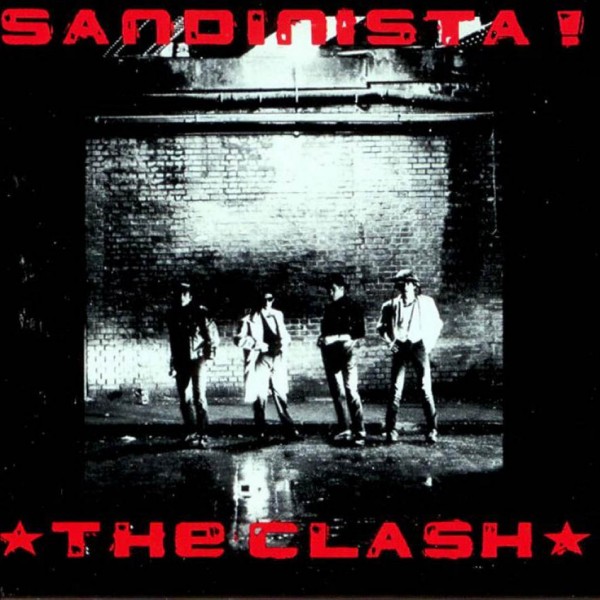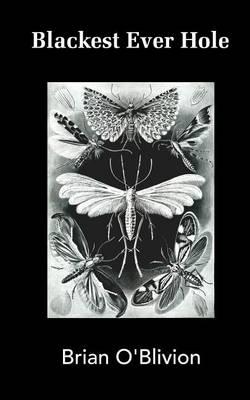 The album sounds incredible. It has a cool, glassy, smooth aesthetic, like expensive vodka. The reality that it’s just The Beatles’ “Ob-La-Di, Ob-La-Da” repeated thirty six times takes a while to sink in.
The album sounds incredible. It has a cool, glassy, smooth aesthetic, like expensive vodka. The reality that it’s just The Beatles’ “Ob-La-Di, Ob-La-Da” repeated thirty six times takes a while to sink in.
The songs mostly suck – puffy, wearisome tracks that make you think one minute in “very good, boys. I’ve gotten the point”…and they continue for another four minutes. Then the next song starts, and it’s exactly the same thing. The whole enterprise drips with pretension. “Mensforth Hill” is literally just another song played backwards, and I think if you listen closely you can hear evil Satanic messages (“we used to play punk rock…“).
What’s the point of this? Was the goal to write so much bad reggae that there would be no more bad reggae left to write? And why is it so long? In order to win a dick measuring contest with Bruce Springsteen, they fluffed Sandinista! out into a monstrous triple album that runs longer than every previous Clash LP combined. It would have been better at just forty minutes, but then I probably would have forgotten about it completely by now.
 Someone smart once said “there is no such thing as bad music, you just didn’t listen to it at the right time of your life.” Poetry feels that way to me. I can’t enjoy it on demand. Either it makes an impression or it doesn’t. Blackest Ever Hole definitely made an impression. Maybe not the Blackest Ever Impression, but I will remember it.
Someone smart once said “there is no such thing as bad music, you just didn’t listen to it at the right time of your life.” Poetry feels that way to me. I can’t enjoy it on demand. Either it makes an impression or it doesn’t. Blackest Ever Hole definitely made an impression. Maybe not the Blackest Ever Impression, but I will remember it.
If “Brian O’Blivion” sounds like a fake name, then know that it’s published by gnOme Books, who release all their books anonymously. I’m not sure why they do this. Maybe they feel that fame is antiethical to art. All their books are published under bizarre, made up names – in this case, a character from David Cronenberg’s cult movie Videodrome.
It’s a book of free verse, rather similar to Baudelaire’s famed Flowers of Evil. But the world now is much more alienated and decadent than Baudelaire’s time, and Blackest Ever Hole is correspondingly more disturbed. Themes of disassociation, despondency, and existential crisis appear, with descriptions of physical realities that might be alien landscapes or scenes from right next door. What BEH makes you feel is hard to tell. But it will make you feel something.
In school, as a boy, he was shown a colorful
chart, broken into parts, each integratively
working together to demonstrate a single fact:
the world holds 300 pounds of insects for every
pound of human flesh
The vocabulary is large but not showy – sometimes small words say more. There’s not a lot of consistency between one poem and another. Some are sparse and spare, leading you from idea to idea like going down a ladder rung by rung. Others are dense, entangling you in dark nets of words. The overall style remains the same, but it’s hard to mistake one of the poems in this book for any other.
It’s a short book, a little more than 75 pages, but it’s definitely worth checking out, as are most of the things gnOme publishes. It succeeds in its goal: blanketing the reader in ennui and discontent. Don’t expect “highbrow” poetry, but this book indeed buries you in a dark hole…and there’s still enough light to read.
 Disclaimer: if it has “James Rolfe” or “AVGN” on it, I am there, wearing the t-shirt. Say what you will about his writing and acting skills, the concept he had (a foul-mouthed nerd plays and critiques “shitty games that suck ass”) made him one of the original Youtube viral successes, and he never had to lip-sync an embarrassing europop song to do it.
Disclaimer: if it has “James Rolfe” or “AVGN” on it, I am there, wearing the t-shirt. Say what you will about his writing and acting skills, the concept he had (a foul-mouthed nerd plays and critiques “shitty games that suck ass”) made him one of the original Youtube viral successes, and he never had to lip-sync an embarrassing europop song to do it.
That said, here comes the pain.
What can I say about the long-awaited AVGN movie? It isn’t funny. It consumed a quarter of a million dollars, several years of James’ life, and deprived us of countless AVGN episodes…and I sat in my seat, waiting nearly two hours for it to get good. I laughed about three times. Mostly because the movie was trying so damn hard that I didn’t want to hurt its feelings. It uses the “two people sound like they’re having sex but they’re actually doing something different” gag. That’s the kind of screenplay-level desperation we’re dealing with here.
The concept behind the movie is the notoriously bad Extra-Terrestrial videogame for the Atari 2600 (which killed the early videogame industry, was mass-buried in landfill, blah blah, everyone knows the story). Remember how it became a running joke that James would refuse to review that game? Well, he’s finally doing it. But why the chickenshit renaming of “ET” to a fictionalised game called “Eee-Tee”? It’s not as if isn’t selling DVDs full of copyrighted game footage already.
The film’s surprisingly talky and elaborate for a character normally associated with scatological profanity and temper tantrums. Soon we learn about government conspiracies and Area 51 and alien baddies. Is there a need for this stuff? We just want to see James doing his thing: ripping on shitty games. Instead we’ve got him uncomfortably acting out weird, not especially funny scenarios with a cast of characters we don’t care much about.
The problem isn’t the small budget – Blair Witch was made for less. The problem is James: and his comedic limitations. Here’s the harsh truth: he isn’t a jack of all trades, able to sing and dance and conjugate sixteen versions of “shitwaffle”. He lucked his way into a format that he was well-suited for (10-20 minute web shorts)…but that’s pretty much where his talents end. I have no desire to see him in full-length movies with actual storylines. And the moments in his AVGN videos that get high-flown and pretentious (the R.O.B. video, anyone?) are the precise moments when I set Youtube’s playback to 2x speed.
The movie winds to its conclusion, and we get to the high point: the review of ET…Or “Eee-Tee”, I guess. It’s kind of quiet and dispirited, low on rage and profanity, but it’s the best part of the movie, because it’s honest. James comes to the realisation that ET isn’t the worst game ever made, and that the problem is with us, and how we manage our expectations. One feels justified in thinking he might be talking about the movie, too – how some people expect the moon on a fucking stick, when sometimes you have to enjoy something for what it is.
That’s what I think he’s saying, anyway. But I took a different lesson from it: know your limits. James is a great web comedian. But he’s never going to be a movie star, and this movie writes “QED” on that statement with permanent ink.
 The album sounds incredible. It has a cool, glassy, smooth aesthetic, like expensive vodka. The reality that it’s just The Beatles’ “Ob-La-Di, Ob-La-Da” repeated thirty six times takes a while to sink in.
The album sounds incredible. It has a cool, glassy, smooth aesthetic, like expensive vodka. The reality that it’s just The Beatles’ “Ob-La-Di, Ob-La-Da” repeated thirty six times takes a while to sink in.

